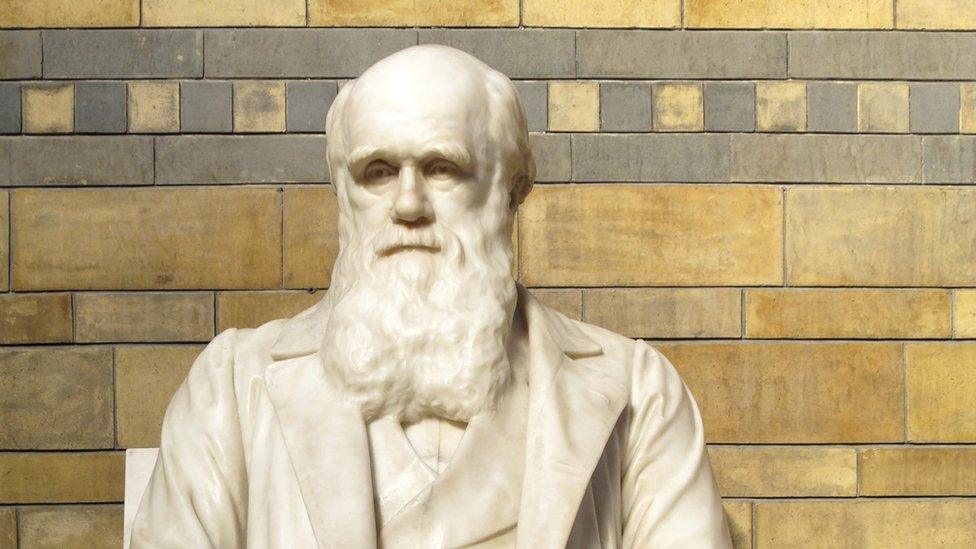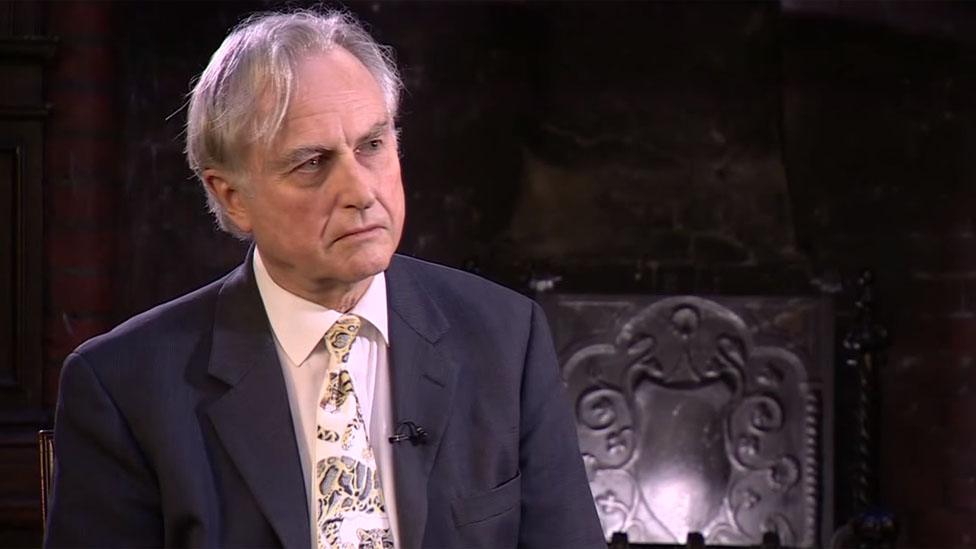The Vocabularist: When is a theory 'just a theory'?
- Published

Charles Darwin said a single discovery could "annihilate my theory"
A Lancashire headmistress attracted fury with a tweet in which she said "evolution is not a fact; that's why it's called a theory".
In ancient Greece theoroi meant something like "observers". They were envoys sent by city-states to consult oracles, to give offerings at famous shrines or attend festivals.
Theoria was a word for their duties. It came to mean any act of observing, and was used by Greek philosophers, generally, in the sense of "contemplation".
Contemplating something does not challenge it - it strives to understand it, whether it is Pythagoras's theorem (theorema in Greek was an object of theoria) or some perceived divine truth.
Still today, when we take a driving theory test we are not studying a school of thought about driving which may be discredited, but general considerations on which good practice is based.

Driving Theory Test - not a philosophical examination
But sometimes theory means an opinion, a suggestion which may be disproved in practice - "only a theory".
This week a former director of public prosecutions criticised police who "believed a theory at the start of the case… We don't want the police deciding what the truth is before the investigation starts".
This definition of theory as something subject to disproof or challenge is deeply and honourably rooted in scientific tradition - in the practice of testing explanations by discovery or experiment.
"Theory and experiment", the 18th Century chemist Joseph Priestley wrote,, external "go hand in hand".
And Darwin in his Origin of Species wrote that new discoveries could "annihilate my theory".
Scientists are proud of the principle that their beliefs can be tested and challenged, not accepted as a matter of faith - that in the words of Darwin's champion TH Huxley, a beautiful hypothesis can be slain by an "ugly fact", external.
But when opponents interpret this to mean evolution - or at least Darwin's doctrine of natural selection - is just one competing opinion, his supporters deny this.
Some theories, scientific bodies say, are "the foundations of human understanding of nature", external and "based on a body of facts that have been repeatedly confirmed, external through observation and experiment".

Richard Dawkins says clarifying the scientific use of "theory" is "a losing battle"
But Richard Dawkins points out, external that scientists themselves use the word with different meanings.
"Trying to clear up this terminological point about the meaning of 'theory' is a losing battle," he says.
He says we should call evolution a "fact" because, he says, "the evidence for evolution is so strong that to withhold assent would be perverse".

The Vocabularist
Select topic "language" to follow the Vocabularist on the BBC News app

Subscribe to the BBC News Magazine's email newsletter, external to get articles sent to your inbox.